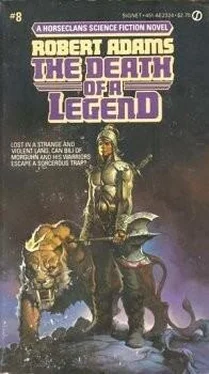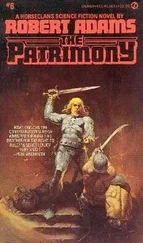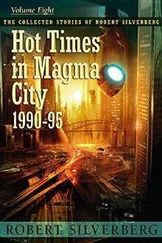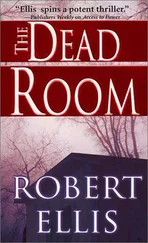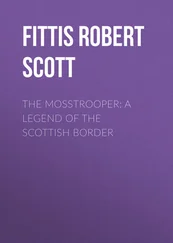When more than four score and ten, Prince Bili had taken a four-hundred-pound boar upon his spear and had held the deadly creature thus impaled until the pack and other hunters had arrived to kill it. The singular feat had been the talk of all the principality for near a year and had added new luster to the legend that Bili had lived.
But Bili would ride and hunt no more, nor would he live much longer.
The bear had come down the river valley from the mountains to the west during last winter’s extremely hard weather. He had lived well and avoided the proximity of man through spring and summer, but with the onset of autumn, he had somehow, somewhere, acquired a fondness for mutton, nor had he stuck at the killing or maiming of the dogs and men who guarded their beasts.
Bili had heard the complaints, organized and joyfully led out the hunt, behind a pack of specially imported Ahnnehnee bear hounds.
But the bear—all abristle with arrows, claws and jaws clotted with dusty gore, little eyes agleam with bloodlust, with those of the pack of hounds still able to hobble all snarling and snapping at his heels and flanks—had come in low, under Bill’s spear, and had savaged the old man terribly before the hounds had pulled him down with Bili’s hastily drawn hanger hilt-deep in his furry body. With many a doleful lamentation, the hunt had borne the prince back to his city, none of them believing at the start of the journey that Bili would be alive at its end. But he was.
His Zahrtohgahn physician, Master Ahkmehd, had first hypnotized the prince, then he and his apprentice had worked long and skillfully on the horribly wounded nobleman. But their patient had never really recovered. Despite their best efforts, infections had set into the jagged wounds, the brittle, shattered bones had failed to mend properly, and, when last the physician had dosed the prince with drugs to ease his pain, he had had no choice but to inform all who asked that the legendary Bili the Axe would most likely be dead by nightfall.
Bili himself had had no need to be told. Poor old Master Ahkmehd’s obvious sorrow—for they two had been close friends of many years’ standing—had been sufficient. As the waves of agony slowly ebbed in the face of the drugs, the Prince of Karaleenos wrinkled his canted nose at the stench of suppuration arising from the torn and deeply gouged muscles and flesh of his arms and shoulders and torso.
Despite the expected wave of sickeningly intense pain which overrode the strong drugs, Bili raised his left arm to where he could see the hand and wrist below the bandages. In the light of the candles, all the wrinkled flesh appeared to be as livid as the face of a corpse, and to the fingers of his questing right hand, those of his left felt ice-cold.
The old man bared his worn yellow teeth in a grimace. A warrior, he knew the signs; the fearsome black rot was well entrenched in his left arm. Amputation at the elbow or, better yet, the shoulder, might… might halt its insidious spread, but who could say for sure and who could say that the same deadly complication would not soon affect the other arm or one or both of the legs.
“No,” he muttered to himself, “Sacred Sun has granted me almost twice as many years as most men live, and I’ll not let them further butcher this body that has served me so well, simply to linger on a few more months or years as a cripple. If the pain gets too much for the drugs, TO use my dirk, but I’ll go to my pyre a whole man.”
Slowly, as the drugs dulled not just the pam but his consciousness as well, he relaxed, and his half-dreaming mind journeyed far, far back, more than seventy years in time.
Taking a fresh grip on the haft of his mighty axe, Bili mindspoke his huge black warhorse, Mahvros, “Now, brother mine, now we fight.”
With Bili and a knot of heavily armed nobles at the point, the squadron of mounted Freefighters crested the wooded hill and swept down the brushy, precipitous slope at a jarring gallop. Naturally a few horses fell, but only a few, and as they reached level ground, Komees Hari Daiviz of Morguhn’s wing moved to the left to take the unruly mob of foemen in the rear.
Unconsciously, Bili tightened his thigh muscles, firming his seat and crowding his buttocks against the high cantle of his warkak, while bending over the armored neck of the thundering black and extending his axe in his strong right arm, the sharp spike at the business end of the haft glinting evilly in the pale light.
Then, they struck!
The big, heavy, war-trained destriers sent ponies tumbling like ninepins, and the well-armed, steel-sheathed nobles and Freefighters wreaked a fearful carnage among the unarmored and all but defenseless horde of shaggy barbarians. The beleaguered lines of Ahrmehnee and Moon Maidens could only stand in wide-eyed wonder at this eleventh-hour deliverance from what would surely and shortly have been their last battle.
A red-bearded headhunter heeled a tattoo on his pony’s ribs and directed the beast at Bili; he jabbed furiously with his crude spear, but the soft-iron point bent against the Pitzburk plate and Bili’s massive axe severed the spear arm, cleanly, at the shoulder.
Screaming a shrill equine challenge, Mahvros reared above a pony and rider and came down upon them, steel-shod hooves flailing. Gelatinous globs of bloody brain spurted from the shattered skull of the man, and the pony collapsed under the unbearable weight, whereupon Mahvros stove in its ribs.
It was a battle wherein living men were ahorse; those not mounted—noble, Freefighter or barbarian—were speedily pounded into the bloodsoaked ground. The shaggy men fell like ripe grain, most of their weapons proving almost useless when pitted against fine modern platearmor and only slightly more effective when employed against the scale-armored Freefighters. To counter blows and thrusts of broadsword and saber, axe and lance, mace and warhammer, the primitive wickerwork targets offered little more protection than did the furs and hides and ragged, homespun clothing.
But though the shaggy men died in droves, it seemed to Bili that there were always more and yet more appearing before him, behind him, to either side of him, jabbing spears, beating on his plate with light axes, with crude blades and with wooden clubs. He felt that he had been fighting, been slaying, been swinging his ever heavier axe for centuries.
Then, abruptly, he was alone, with none before him or to either side. At a nicker of movement from his right, he twisted in his sweaty saddle, once more whirling up his gore-dotted axe. But it was only a limping, riderless pony which was hobbling as fast as it could go from that murderous melee, eyes rolling whitely and nostrils dilated.
Bili slowly lowered his axe and relaxed for a brief moment, slumped in his saddle, drawing long, gasping, shuddery breaths. Beneath his three-quarter armor, the padded-leather gambeson and his small clothes, his body seemed to be only a single long, dull ache, with here and there sharper pains that told the tale of strained muscles, while his head throbbed its resentment of so many clanging blows upon and against the protecting helm. Running his parched tongue over his lips, he could taste the sweat bathing his face and salt blood trickling from his nose, but he seemed to be unwounded.
Several more stampeding ponies passed by while he sat, and one or two troop horses, the last with a Freefighter reeling in the kak, rhythmically spurting bright blood from a left arm that ended just above the elbow. Exerting every ounce of his willpower, Bili straightened his weary body and reined Mahvros about, bringing up his ton-heavy axe to where he could rest its haft across the flaring pommel of his saddle.
Fifty yards distant, the battle still surged and raged. He had ridden and fought his way completely through the widest, densest part of the howling horde, which was a testament to the charger’s weight and bulk and savage ferocity as much as to his own fighting skills.
Читать дальше
